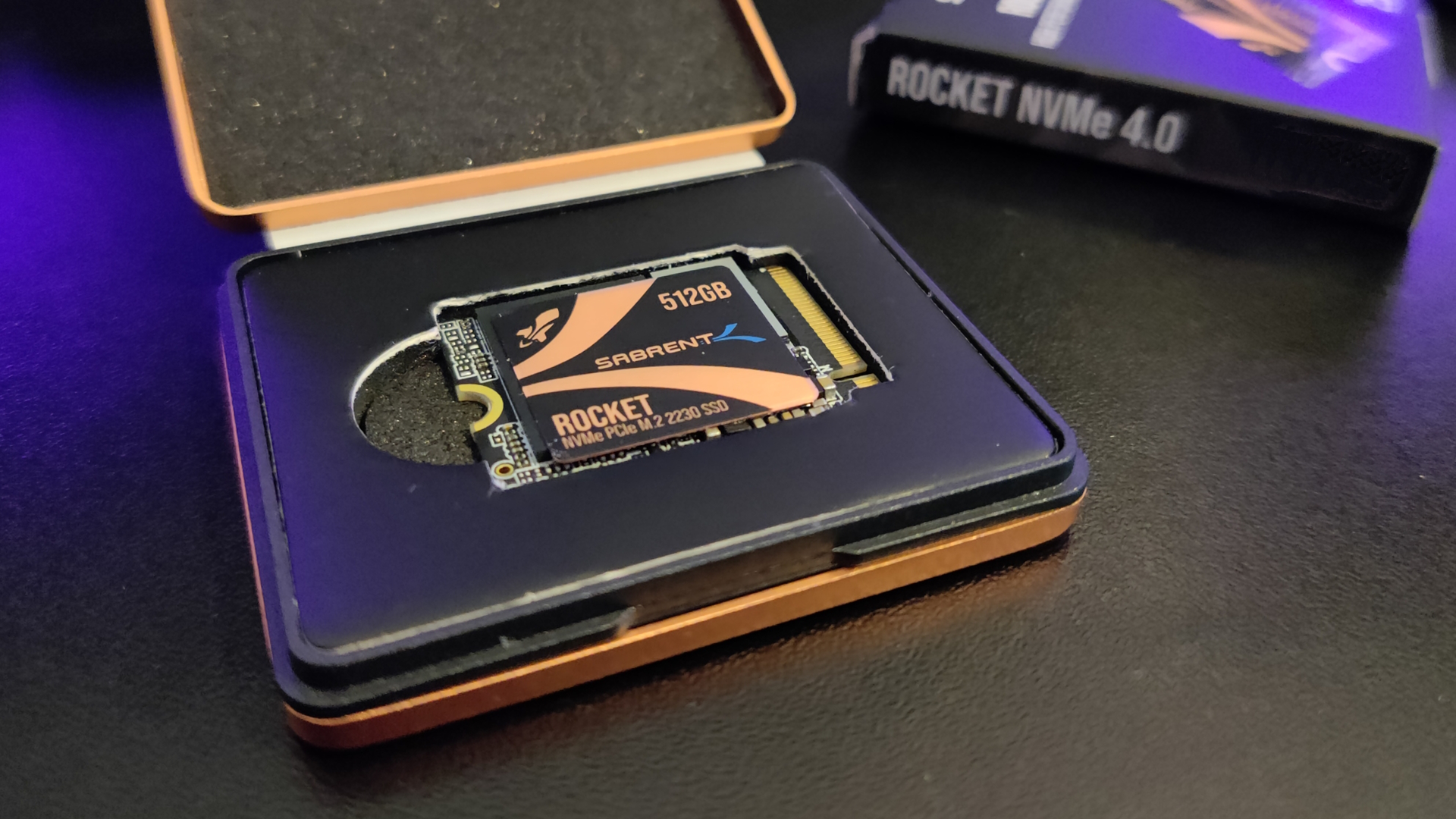The Asus ROG Ally may be the best handheld gaming PC but the Steam Deck's not finished yet

I'm a huge fan of the new Asus ROG Ally, but don't count Valve's Steam Deck out just yet. Asus' new machine is the most powerful handheld gaming PC around right now, and that's not the only thing that makes it stand out. The fact Asus has actually managed to make Windows 11 an eminently usable operating system for a device with just a 7-inch screen is pretty incredible.
Especially considering it's done it with Armoury Crate.
Asus' software has always been lumped in with Razer's Synapse and NZXT's CAM in terms of annoying technical necessities, but in recent times it's actually become useful. Weird, eh? And in the ROG Ally it makes the Windows OS actually work in a handheld gaming PC.
Sure, there are still jarring moments where it switches out of its pseudo handheld mode and drops you into the Windows desktop, maybe when it's loading a game from Steam or there's some notification, but Big Picture Mode will now give you almost the full SteamOS experience and stop a lot of that from happening.
But it is the gaming performance which is the most gratifying part of the ROG Ally. In the hand it delivers a fantastic gaming experience, running most games easily at 1080p, and those that don't will likely be fixed once we start getting regular driver updates from either Asus or AMD for its impressive Z1 Extreme APU.
And in its Turbo mode, plugged into a power socket and a living room TV, it gives an excellent living room console experience, too. Nvidia's no longer letting me stream games from my desktop PC onto my TV, but maybe the ROG Ally can fill the gap.
It's also surprisingly well priced. Especially considering I expected Asus of all people to label up a gaming handheld as a Republic of Gamers device and presume it could charge $1,000+ for the privilege.
Because it's just $50 more than the top-end, 512GB Valve Steam Deck, I think we can probably say that system's had its day.
(Image credit: Future)
While the price gap makes it practically impossible to recommend the Valve device, the other two Deck options are still worth a look.
But that's not it for the Steam Deck as a whole. Valve played it super smart from the get-go, and released three different SKUs of the Deck with only really the storage being a differentiating factor between them. So, while the price gap between the 512GB Steam Deck at $649 and the 512GB ROG Ally at $699 makes it practically impossible to recommend the Valve device, the other two Deck options are still worth a look.
At $529 the 256GB Deck still feels pretty close to the ROG Ally in pricing, but it comes with a carry case that, frustratingly Asus isn't providing for its own handheld. That's doubly frustrating because all the third-party cases are designed for the Deck and really don't fit the ROG Ally.
But that $399 64GB eMMC Steam Deck is still calling to me. You still get a carry case with it (you hear that, Asus?) and it's still the exact same performance hardware inside the machine. Sure, that 64GB is pretty weak in terms of a storage library, but third party 2230 SSDs are super cheap right now.

(Image credit: Future)
We've checked out the Sabrent Rocket 2230 drives and they're faster and more efficient that the ones Valve ships the higher spec Decks with. And a 256GB Sabrent Rocket 2230 drive comes in at just $50. So, for $449 all in you can have yourself a 256GB Deck with an $80 saving.
In fact, you could pay $90 for a 512GB Sabrent Rocket 2230 and get yourself almost that top-spec Deck (except without the anti-glare screen) for just $489.
That all makes the Steam Deck still utterly relevant even in the face of this new generation of more powerful devices. The Deck also has a better battery life with that weaker APU, and SteamOS is built specifically for the hardware, which makes it better integrated. Sure, you have to rely on Proton to support all your games, but it's seriously good value.
And you can have one right now.
The ROG Ally is still in pre-order and isn't actually on sale until June 13. And who knows how long you're going to have to wait to actually receive one given the likely demand on the first units.
So yeah, the Steam Deck's not finished, not by a long shot.




